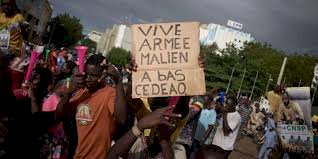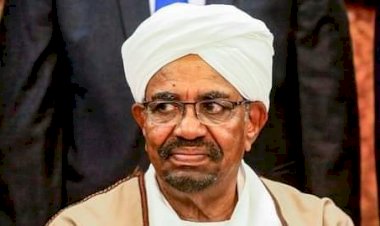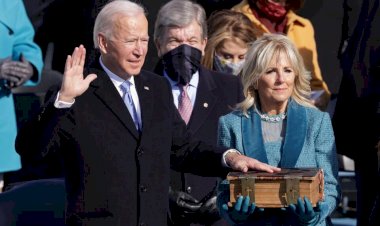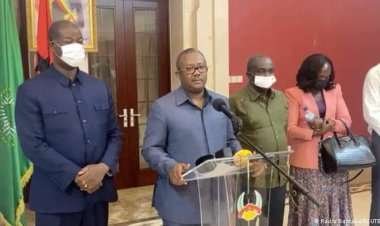“Each political crisis in Bamako results in an overflow of violence in the Sahel”

To stay up to date on African news, subscribe to the “Africa World” newsletter from this link. Every Saturday at 6 am, find a week of current events and debates treated by the editorial staff of “World Africa”.
 Rally on Independence Square in Bamako, September 8, 2020, following a call from the September 4 Popular Movement (MP4) in favor of the ruling junta. MICHELE CATTANI / AFP
Tribune. Since the coup d’état of August 18, everything seems to be going in circles in Mali, where, however, the emergency is everywhere. Gone are the emotions and the paradoxical euphoria that accompanied the special forces entering Bamako from the Kati garrison camp after months of struggle for more democracy, we should now look reality in the face.
The Malian youth who, out of spite or hope, sided with the helpless political class behind an Imam Dicko preaching good governance, must certainly wonder about this unprecedented fact after the departure of IBK which represented, in his eyes, the “submission of the country to France”. The dream of democracy, rupture and reform eventually led to the arrival of a junta announcing good intentions in the absence of measures or solutions, but not yet its departure. Before changing her mind, had she not initially called for three years of … military transition?
The dream of democracy, rupture and reform eventually led to the arrival of a junta announcing good intentions in the absence of measures or solutions, but not yet its departure. Didn’t she claim, initially three years of … military transition?
Read also “The rise of Imam Dicko is the symbol of the failure of the Malian political elite”
Beyond the wind of nationalism and anti-imperialism which blew in the Sahel during a coup d’état which would have made the dream of the end of “French influence” a reality, Malian reality, for its part, remains unchanged and worrying. Sadly, she seems drowned in the jubilation over the fall of a shaken, delegitimized “hangman” as the immediate but perhaps unlikely arrival of Russians or other actors is scrutinized. Certainly not as a Good Samaritan!
Russia’s African experience has, moreover, never been forged in the Sahelian sands, apart from Ethiopia and Somalia in the 1970s, in addition to a lack of diplomatic agility beyond provision of military equipment.
The junta already overwhelmed
Meanwhile, Mali is in the status quo with two-thirds of the territory no longer responding to orders from Bamako where one can still walk safely or parade in “command car” and fatigues. The junta already seems overwhelmed by the realities of political power.
The clerics are getting back on their feet to set themselves up as a guarantee or democratic shield. The sheriff of Nioro-du-Sahel [locality in the west of the country], Bouyé Haïdara, like Imam Mahmoud Dicko who had, too quickly, announced his withdrawal from his mosque to finally recall that it “is well in the Mali ”, still weigh on the situation. To lead the transition, they came together: “Everyone except Soumeylou Boubèye Maïga”, the former prime minister they ousted in 2019.
Article reserved for our subscribersRead also The Sahel, new battleground in the war between Al-Qaida and the Islamic State organization
At the same time that the new masters of Bamako show, day by day, their lack of preparation for the management of power, the gang of Assimi Goita [the head of the junta] leaves a great void in the command on the ground in the north. , but especially in the center of the country where they all served. Colonel Goita cut his teeth in Sévaré, while Ismael Wagué, the communicator of the National Committee for the Salvation of the People (CNSP), was mainly in the strategic area of Koro-Bankass.
These operational officers now seem to be abandoning their areas in favor of terrorist groups who are engaged in fierce battles. The men of Iyad Ag-Ghali’s Support Group for Islam and Muslims (GSIM) are hunting down the Islamic State in the Great Sahara (EIGS) organization as part of a vast “cleansing” of Mali and from Burkina Faso, to the borders of North Tillabéri in Niger. This second ongoing Malian crisis is also Sahelian and sub-regional.
A deteriorating security situation
While political negotiations are going well in Bamako, within the Community of West African States (ECOWAS) and with the rest of the international community, the regional security situation is not waiting. It is deteriorating in Mali where the arrival of the military in power has not brought peace to the populations of the center and the north who are in expectation. Terrorist groups that had been somewhat forgotten about the days of the coronavirus – a time of reorganization and reconfiguration – have resumed the attacks.
Read also “After Mali, whose turn? “: West Africa on the alert
Whenever there is an institutional political crisis in Bamako, this results in an overflow of violence and jihadism in the Sahel. The noose is tightening in this region over which there are significant risks of instability. The rout of the EIGS risks throwing it into the arms of the Islamic State group in West Africa (Iswap in English, appeared in 2016 following a split with Boko Haram), with the risk of a new junction front which would particularly and seriously threaten Niger.
The attacks in recent days on the border between Mali and Mauritania are a sign of a gradual takeover of the situation by the GSIM in the only pockets of this region which were still under relative control of the Malian army. On the same border, the areas of Guiré and Nara have recently suffered violent attacks and repetitive ambushes.
Regional diplomatic errors
From Mali, the alert was also given of a strong advance by the jihadist front towards Kayes not far from the Senegalese borders, a rare island of stability in the region. The overflow towards Côte d’Ivoire has been clear since the attacks of June 2020 in the far north where the GSIM’s katiba de Serma operates from the south of Burkina Faso, created in 2012 by Souleymane Keïta known as “Al-Bambari” ( Bambara). The latter has been detained in Mali since 2015 and the subject of heavy negotiations as part of an exchange for the release of hostages in the hands of the jihadists.
Combined with the inevitable effects of political turmoil over high-risk electoral deadlines, this situation should alert the international community. But in addition to Malian disarray, there are regional diplomatic mistakes and the scattered trial and error of international partners in the Sahel.
Despite the junta’s “assurances”, the French military operation “Barkhane”, which won neither the war on terrorism nor the peace with Sahelian public opinion, wonders. As we speak of the deployment of “Takuba”, this European special force which should fight alongside units trained in the area of the three borders of Liptako-Gourma, in Mali, the most operational soldiers seem to have done, for the hour, the risky choice of trade show political strategies.
The procrastination continues between caciques of the M5-RFP [the coalition of opponents who for months contested “IBK”], fearing to be robbed of their revolution born in the pain of engagement and the soldiers who claim the immaculate design. Meanwhile, the future of the rule of law in Mali is more than uncertain, security risks haunt the Sahel and its regional and international partners more than ever disarmed and in competition.
Bakary Sambe is director of the Timbuktu Institute and teacher-researcher at Gaston-Berger University in Saint-Louis, Senegal.
Bakary Sambe


















































